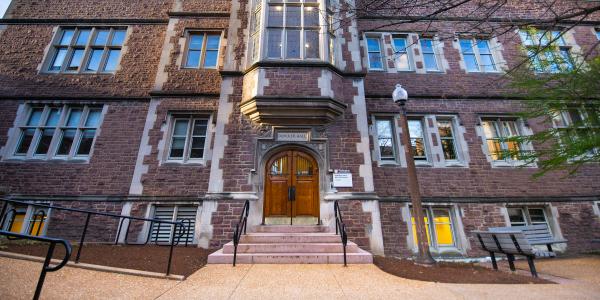Event in Honor of Steve Zwicker
Derek Hirst, Steve’s long-term friend and collaborator in the Department of History, will introduce the event. The talk will be followed by a reception. This is an occasion for us as a community to honor Steve’s contributions to the study of early modern literature, to our department and to the university—over the last 52 years.
'The Trouble with Friends and Relatives': John Milton in Collaboration
This talk explores the ways of literary collaboration, of literary possession, of belonging to or with another—not the sort of exercise you might encounter in the study of Shakespeare’s plays where scholars armed with computers and algorithms determine which words Shakespeare wrote and which words his collaborators wrote for him, or together with him, or instead of him, or in addition to him. My notion of collaboration is vaguer, looser, not tied to calculable models of co-authorship. I am interested, rather, in the psychological or imaginative dimension of collaboration, the idea of collaboration as a kind of identification and a betrayal, the idea, that is, of collaborative work as possession by and of others. Such collaborations did not always produce a keen sense of pleasure in the co-opted; some produced anger and some provoked payback, a reflex especially true of John Milton’s age, perhaps especially true for the animadverting John Milton. Though having said that, immediately some of Milton’s contemporaries come to mind, writers certainly familiar with the poetics of payback—Andrew Marvell, John Dryden, the earl of Rochester. So we might just leave this at ‘especially true of John Milton’s age,’ a time of answers and animadversions, of adversarial relations among troubling peers, even among a writer’s friends and relatives.
As this talk outline indicates, Steve's work ranges across the literary history of the seventeenth century and focuses especially on Restoration literature, paying special attention to the poetry, criticism, and drama of John Dryden. He is the world authority on Dryden. He has focused our attention especially on the interaction of history and literature. He has written and edited, co-authored and co-edited (his interest in collaboration is deep), a number of groundbreaking studies. His published works include John Dryden: Poems, Plays, Prose, Letters; Marvell at 400, edited with Matthew Augustine; Lord Rochester in the Restoration World, edited with Matthew Augustine; Andrew Marvell, Orphan of the Hurricane, with Derek Hirst; The Cambridge Companion to Andrew Marvell, ed. with Derek Hirst; Writing Lives: Biography and Textuality, Identity and Representation in Early Modern England, ed. with Kevin Sharpe; The Cambridge Companion to John Dryden; Reading, Politics, and Society in Early Modernity, ed. with Kevin Sharpe; John Dryden: A Tercentenary Miscellany; Selected Poems of John Dryden, ed. with David Bywaters; Refiguring Revolutions, ed. with Kevin Sharpe; The Cambridge Companion to English Literature: 1650-1740; Lines of Authority: Politics and English Literary Culture, 1649-1689; Politics of Discourse, ed. with Kevin Sharpe; Politics and Language in Dryden’s Poetry: The Arts of Disguise; Dryden’s Political Poetry: The Typology of King and Nation.

